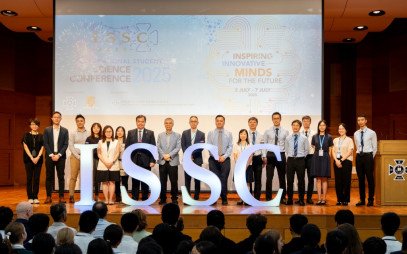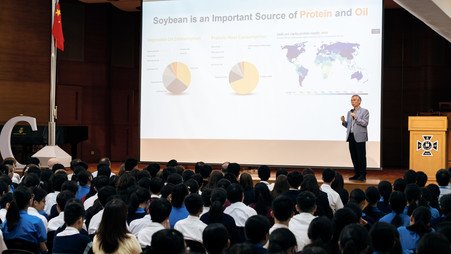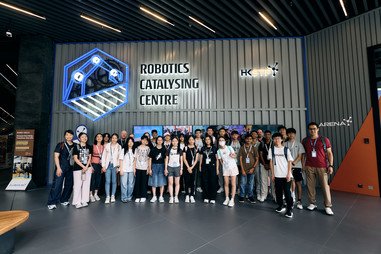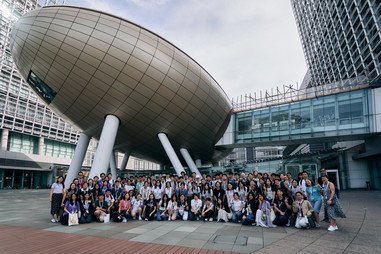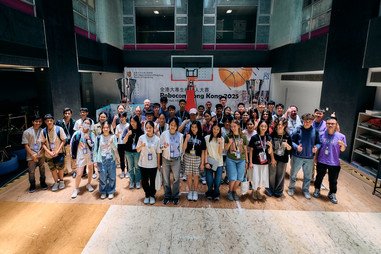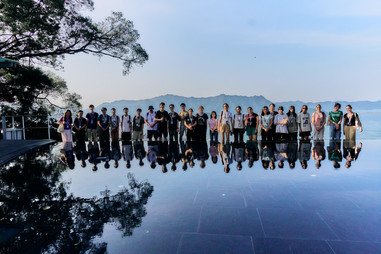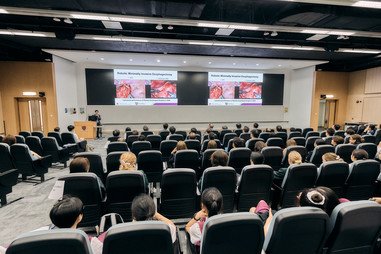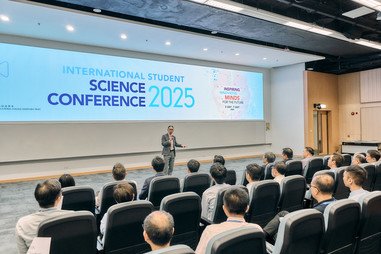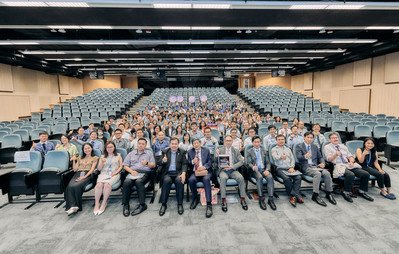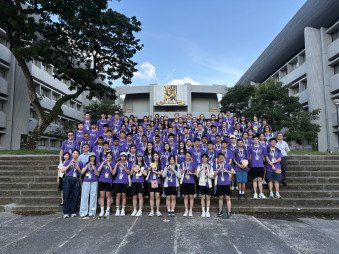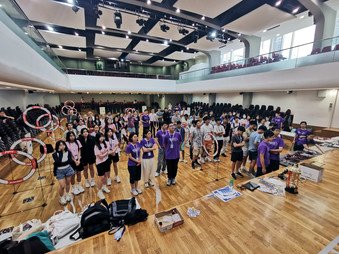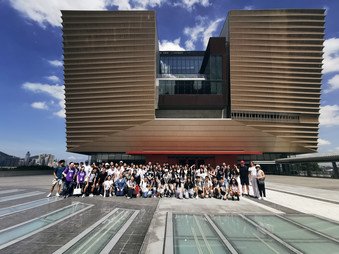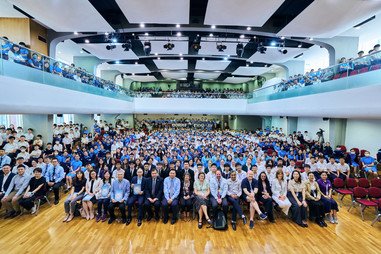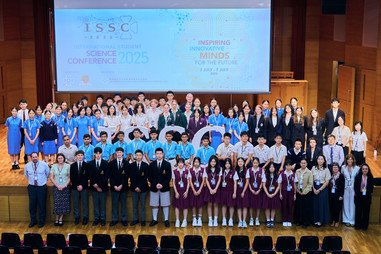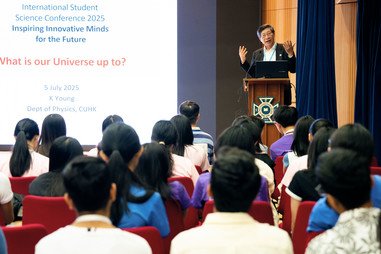INTERNATIONAL STUDENT SCIENCE CONFERENCE 2025
“Inspiring Innovative Minds for the Future” 2-7 July 2025
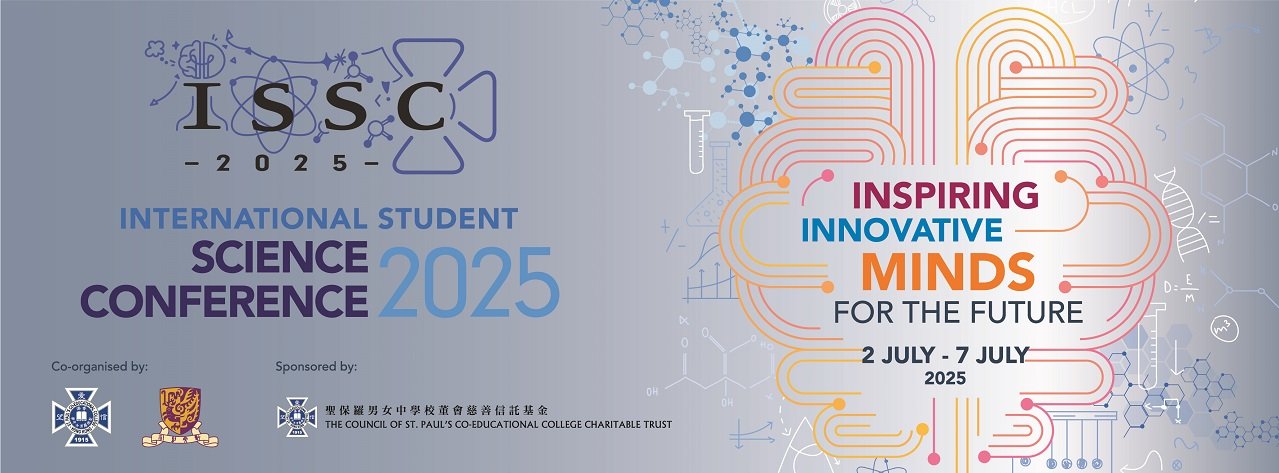
About the Conference
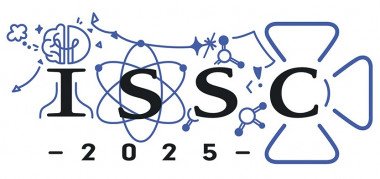
St. Paul’s Co-educational College (SPCC) is pleased to welcome you to the International Student Science Conference (ISSC), which will be held in Hong Kong from 2 July to 7 July 2025.
The ISSC 2025 is co-organised by our College and The Chinese University of Hong Kong (CUHK) with the goal of enhancing students’ understanding of scientific knowledge and fostering collaboration and friendship among participating schools and individuals.
The theme for the forthcoming conference is “Inspiring Innovative Minds for the Future”. Renowned scholars and researchers from CUHK will deliver thematic talks, complemented with a series of workshops and educational visits that will give participants hands-on experience in their fields of studies. Besides, participants from participating schools along with our students will give presentations on their own science projects.
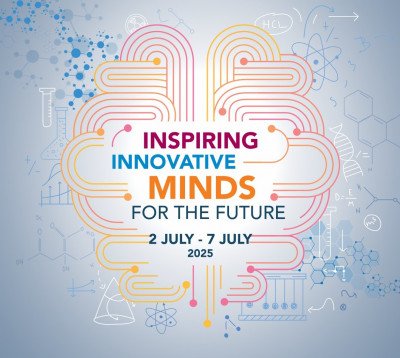
- Convitto Marco Foscarini, Venice
- Presbyterian Ladies' College, Sydney
- St. Paul’s Co-educational College, Hong Kong
- Stella Matutina Girls' High School, Taichung
- The Doon School, Dehradun
- The Hutchins School, Hobart
- Tianjin NanKai High School, Tianjin
2 July 2025 (Wednesday)
- Opening Ceremony
- Keynote Science Talk 1: “A Journey of Soybean Research”
by Professor Lam Hon Ming (School of Life Sciences, CUHK)
- Welcome lunch
- Introduction of CUHK
- Guided tour at Chung Chi College
3 July 2025 (Thursday)
- HK Science and Technology Park Educational visits and workshops
4 July 2025 (Friday)
- Faculty of Engineering, CUHK
Educational visits and workshops
- Workshops by Department of Earth and Environmental Sciences, CUHK
- Visit to Fok Ying Tung Remote Sensing Science Building
- Guided tour at New Asia & United Colleges
- Cultural night
5 July 2025 (Saturday)
- Sharing by Professor Kenneth Young (Department of Physics, CUHK)
- Drone workshop
- City tour
6 July 2025 (Sunday)
- Visit to HK Palace Museum
- West Kowloon Culture District
- Preparation for Science Project Presentation
7 July 2025 (Monday)
- CUHK admission talk
- Science Project Presentation
- Keynote Science Talk 2: “AI and Robotics in Advancing Surgery for 21st Century”
by Professor Chiu Wai Yan, Philip (Dean, Faculty of Medicine, CUHK)
- Closing Ceremony
- Tea reception
- Free time / Checkout
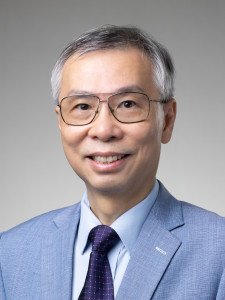
2 July 2025 – Keynote Science Talk 1
Professor Lam Hon Ming
Current Position
- Choh-Ming Li Professor of Life Sciences, School of Life Sciences
- Director, Molecular Biotechnology Program
- Director, State Key Laboratory of Agrobiotechnology
- Director, Institute of Environment, Energy and Sustainability
- Director, RGC-AoE Center for Genomic Studies on Plant-Environment Interaction for Sustainable Agriculture and Food Security
- Director, Center for Soybean Research
- Associate Director, Institute of Plant Molecular Biology & Agricultural Biotechnology
- Student Hostel Warden, Daisy Li Hall, New Asia College The Chinese University of Hong Kong
Professor Lam Hon-Ming is the Choh-Ming Li Professor of Life Sciences at The Chinese University of Hong Kong (CUHK). He is concurrently the Director of State Key Laboratory of Agrobiotechnology (CUHK and the Director of Institute of Environment, Energy and Sustainability. Professor Lam has published more than 230 papers in renowned journals, including Nature, Lancet, Nature Genetics, Nature Communications, PNAS, etc. with a citation of more than 16,000 times. His research has also been recognised by the award of 3 provincial and ministerial science and technology awards, the Medal of Honour by HKSAR Government, "Leader of the Year" by Sing Tao News Corporation Limited, and the World’s Top 2% Most-Cited Scientists by Stanford University. Meanwhile, 20 patents and 5 soybean varieties have been developed and approved.
Pioneering the World’s Soybean Genomic Research in Connecting to Wild Soybeans: In 2010, Professor Lam’s team was the world's first to use whole-genome-sequencing technology to reveal the high diversity of wild soybean genomes which are then proven to entrap novel and useful genes/alleles for crop improvement, especially for adaptation to challenging environments. This ground-breaking research was published as a cover story in Nature Genetics.
In addition, Professor Lam's team also spent 10 years leading an international effort to construct the world's first wild soybean high-quality soybean reference genome. This work was published in 2019 in Nature Communications, providing an important tool for soybean researchers and breeders.
Soybean Stress Tolerance from Theory to Application: In 2014, Professor Lam’s team reported the identification of the major salt tolerance gene from soybean in Nature Communications, using a combined genomic and genetic approach. This gene is by far the most effective native salt-tolerance soybean gene existing naturally in some of the cultivated and wild soybeans. Making use of this scientific discovery to develop molecular markers, Prof. Lam collaborated with breeders in the Gansu Province to successfully generate four new salt and drought-tolerant soybean varieties. Up to 2023, the cumulative acreage of three of these varieties has exceeded 78,000 hectares, spanning 2,000 km of the Loess Highland. The additional income brought to local farmers was estimated at RMB 97 million. The cultivation of these nitrogen-fixing soybean varieties is estimated to have saved more than 70,000 tones carbon dioxide equivalence.
The efforts of promoting sustainable soybean cultivation have been extended to developing countries including South Africa (currently in Eastern Cape) and Pakistan (currently in Faisalabad), with the aims of improving the incomes of subsistent farmers and raising the social status of women. Professor Lam's team has donated some stress-tolerant seeds as a starter and organised workshops to train the local scientists. The final goal is to enable the local scientists to perform genetic crosses and selections, and thus developing local breeding programs to empower underprivileged farmers with improved economic sustainability.
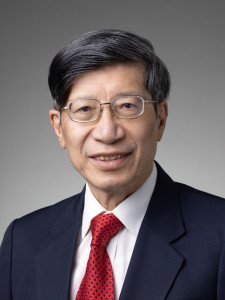
5 July 2025 – Sharing
Professor Kenneth Young
Current Position
- Emeritus Professor, Department of Physics The Chinese University of Hong Kong
Professor Kenneth Young is currently an Emeritus Professor at the Department of Physics, The Chinese University of Hong Kong (CUHK). He was also the Founding Master of CW Chu College, CUHK. Professor Young obtained his BSc in Physics and his PhD in Physics and Mathematics at the California Institute of Technology, USA. He took a position at CUHK in 1973, and embarked on a highly regarded career as a theoretical physicist. Professor Young has produced extensive research in elementary particles, field theory, high energy phenomenology and dissipative systems. He was a recipient of the Vice-Chancellor’s Exemplary Teaching Award for his teaching in physics, and has also taught in General Education. Professor Young has been at various times chairman of the Department of Physics, Dean of Science and Dean of the Graduate School, and served as Pro-Vice-Chancellor of CUHK from 1994 to 2011.
In the later stages of his career, Professor Young has moved away from administration roles in universities, and toward direct teaching of students. He reflects that “one has to have passion in one’s subject. You cannot disguise it and it would help tremendously if the students could feel and see you have it in you. It makes teaching all the more effective.”
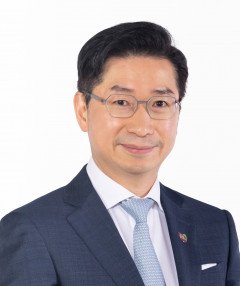
7 July 2025 – Keynote Science Talk 2
Professor Chiu Wai Yan, Philip
Current Position
- Dean, Faculty of Medicine
- Shun Hing Education and Charity Fund Professor of Robotic Surgery
- Director, Multi-Scale Medical Robotics Center The Chinese University of Hong Kong
- Director of Endoscopy, Prince of Wales Hospital and New Territories East Cluster, Hospital Authority
Professor Philip Chiu is a distinguished surgeon and academic leader in the field of robotics, minimally invasive surgery, and endoluminal surgery. He currently serves as the Dean of the Faculty of Medicine at The Chinese University of Hong Kong (CUHK), where he holds the prestigious Shun Hing Education and Charity Fund Professorship in Robotic Surgery. In addition to these roles, he is a founding Director of the Multi-Scale Medical Robotics Center, Director of Endoscopy for the Hospital Authority’s New Territories East Cluster, and a member of the Steering Committee for Health and Medical Innovation Development, Health Bureau of the HKSAR Government.
Graduating from CUHK in 1994 with two scholarships, Professor Chiu became a fellow of the Royal College of Surgeons of Edinburgh (General Surgery) and the Hong Kong Academy of Medicine in 2001, and earned his Doctor of Medicine from CUHK in 2009. His pioneering work includes performing Hong Kong's first endoscopic submucosal dissection (ESD) for early GI cancers in 2004, followed by the world’s first robotic gastric ESD in 2011 and the first robotic colorectal ESD in 2020.
Professor Chiu’s commitment to advancing healthcare technology is evident through his leadership in interdisciplinary collaboration, exemplified by the establishment of the Chow Yuk Ho Technology Centre for Innovative Medicine at CUHK and the Multi-Scale Medical Robotics Center under InnoHK’s research cluster of artificial intelligence and robotics. With a strong passion and dedication to translating novel endoscopic devices and technologies from bench to bedside, his recent initiatives include the introduction of an AI-powered system for colonoscopy detection in 2021, followed by a groundbreaking AI system for the detection of early gastric cancers during upper GI endoscopy. These innovations aim to increase disease detection rates and enhance the training of endoscopists.
Having published near 400 peer-reviewed manuscripts and 6 book chapters, Professor Chiu’s achievements in innovation and research have garnered him numerous prestigious accolades, including the State Scientific Technology and Progress Award from the People’s Republic of China, two Gold Medals with Congratulations from the Jury at the International Exhibitions of Inventions in Geneva, the Spirit of Hong Kong Award on Innovation, and the Karl-Storz-Harold Hopkins Golden Telescope Award at the Hamlyn Symposium on Medical Robotics by Imperial College London.
Lee Shu Pui Hall, renovated in 2017, is an 8-storey co-ed hostel offering around 300 accommodations, the most at Chung Chi College.
|
Room |
.jpg) |
|
Activity Room (Ground Floor) |
 - 3.jpg) |
| Common Area (Ground Floor) |
 - 2.jpg)  - 1.jpg) |
| Common Area (Each floor) |
 |
Convitto Marco Foscarini, Venice
- Cartography: Bridging Past and Future Through Digital Innovation
Presbyterian Ladies' College, Sydney
- Mini UV Shields: Investigating the Potential of SiO2-based Nanocoating for the Prevention of Microplastic Shedding from Popular Outdoor Surfacing Materials
- Out Of The Frypan, (Not) Into the Fire: Making Cooking Wheely Safe
St. Paul’s Co-educational College, Hong Kong
- CareGuard
- Invention of the First Web-Based Artificial Intelligence (AI) software for Safe Drug Prescription - Medisafe
Stella Matutina Girls' High School, Taichung
- Sodium Alginate with Calcium Chloride as Alternatives for Bioplastic Bags
- From Waste to Worth: Reimagining Chalk for a Sustainable Future
The Doon School, Dehradun
- Triboluminescent Effect of Sugar
- The Effect of a Hyperaccumulator Plant on Total Dissolved Solute Levels in a Water Sample
The Hutchins School, Hobart
- How flammable is the Australian Bush: An investigation into the relationship Australian ecosystems have with fire
Tianjin Nankai High School, Tianjin
- Solid-State Solutions: MOFs and the Future of Energy Storage
On programme: Ms Lau Oi Ha Email: spcc-loh@spcc.edu.hk


